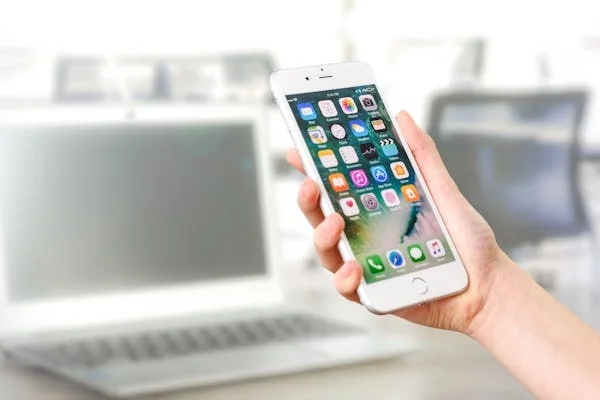In an era where artificial intelligence (AI) is revolutionizing various industries, the integration of AI-driven tools like ChatGPT into custom mobile app development services is becoming increasingly prominent. ChatGPT, developed by OpenAI, is a powerful language model that excels in understanding and generating human-like text based on the input it receives. This capability can be harnessed in numerous ways to enhance the development process, improve user experiences, and streamline communication. This article delves into how ChatGPT can be effectively used in custom mobile app development services, highlighting its benefits, applications, and future potential.
Enhancing Ideation and Conceptualization
The initial phase of mobile app development often involves brainstorming and conceptualizing the app’s core idea. ChatGPT can assist developers and clients by generating creative ideas, suggesting features, and providing insights based on current market trends. By analyzing vast amounts of data, ChatGPT can predict what features might be popular or suggest innovative functionalities that could give the app a competitive edge.
For instance, a development team working on a new fitness app could use ChatGPT to explore unique workout tracking features or personalized nutrition plans. The AI can generate multiple concepts, allowing the team to evaluate and refine the best ideas efficiently.
Streamlining Communication
Effective communication between developers, designers, and clients is crucial for the success of any custom mobile app project. ChatGPT can act as a communication facilitator, helping to translate technical jargon into easily understandable language for clients. This ensures that all stakeholders are on the same page regarding the app’s requirements and progress.
Additionally, ChatGPT can be integrated into project management tools to provide real-time updates, answer common questions, and automate routine communications. This reduces the time spent on back-and-forth emails and meetings, allowing the development team to focus more on actual development tasks.
Assisting in Requirement Gathering
Gathering and documenting detailed requirements is a critical step in the custom mobile app development services process. ChatGPT can aid in this by conducting initial interviews with clients and stakeholders to gather their needs and preferences. By asking structured questions, the AI can compile a comprehensive list of requirements, which developers can then refine and expand upon.
This process not only saves time but also ensures that no critical detail is overlooked. ChatGPT’s ability to understand context and nuance allows it to capture subtle requirements that might otherwise be missed in traditional interviews.
Code Generation and Debugging
One of the most transformative applications of ChatGPT in custom mobile app development is its ability to assist with code generation and debugging. Developers can use ChatGPT to generate code snippets for various functionalities, such as user authentication, data handling, or UI components. This accelerates the development process by reducing the amount of manual coding required.
Furthermore, ChatGPT can help identify and fix bugs in the code. By analyzing error messages and code snippets, the AI can suggest possible solutions or pinpoint the exact location of an issue. This capability is particularly beneficial for junior developers or when working with complex codebases, as it provides an additional layer of support and quality assurance.
Personalizing User Experiences
In today’s competitive app market, providing personalized user experiences is key to retaining users and driving engagement. ChatGPT can be integrated into mobile apps to deliver tailored content, recommendations, and interactions based on user behavior and preferences. For example, a news app could use ChatGPT to curate articles that match the user’s interests, while an e-commerce app could suggest products based on past purchases and browsing history.
By leveraging ChatGPT’s natural language processing capabilities, apps can also offer more intuitive and conversational interfaces. This enhances the overall user experience, making the app more engaging and user-friendly.
Enhancing Customer Support
Providing excellent customer support is essential for maintaining user satisfaction and loyalty. ChatGPT can be deployed as a chatbot within mobile apps to handle a wide range of customer service tasks, from answering frequently asked questions to resolving issues and providing personalized assistance.
The AI’s ability to understand and respond to natural language queries makes it an effective tool for real-time support. It can handle multiple queries simultaneously, reducing wait times and improving the overall efficiency of customer support operations. Additionally, ChatGPT can escalate complex issues to human agents when necessary, ensuring that users receive the best possible assistance.
Facilitating Content Creation
Content is a significant aspect of many mobile apps, particularly those in the media, education, and entertainment sectors. ChatGPT can aid in generating high-quality content, such as articles, tutorials, and social media posts. Its ability to produce coherent and engaging text based on given prompts can help custom mobile app development services providers maintain a steady flow of fresh content, keeping the app relevant and engaging for users.
For educational apps, ChatGPT can generate quizzes, summaries, and explanations tailored to different learning levels. In gaming apps, it can create in-game narratives and dialogues, enriching the user experience with immersive storytelling.
Future Potential and Challenges
As AI technology continues to advance, the potential applications of ChatGPT in custom mobile app development will expand even further. We can anticipate more sophisticated integrations, where ChatGPT not only assists with custom mobile app development services and support tasks but also plays a central role in the app’s core functionalities. For example, future mobile apps might leverage ChatGPT for real-time language translation, advanced voice interactions, and more.
However, the integration of ChatGPT also presents challenges that need to be addressed. Ensuring data privacy and security is paramount, especially when the AI handles sensitive user information. Developers must implement robust safeguards to protect user data and comply with relevant regulations.
Moreover, while ChatGPT can significantly enhance productivity, it is not a replacement for human creativity and judgment. Developers should view it as a tool that complements their skills, helping them to achieve better results more efficiently.
Final Thoughts on ChatGPT & Custom Mobile App Development Services
Incorporating ChatGPT into custom mobile app development services offers numerous benefits, from enhancing ideation and communication to streamlining coding and debugging processes. Its ability to personalize user experiences, provide efficient customer support, and facilitate content creation makes it a valuable asset for developers aiming to create innovative and user-centric mobile apps.
As the technology evolves, the role of ChatGPT in app development is set to grow, offering even more advanced capabilities and transforming the way developers create and maintain mobile applications. By embracing this AI-driven tool, development teams can stay ahead of the curve, delivering high-quality, cutting-edge apps that meet the ever-changing needs of users.





